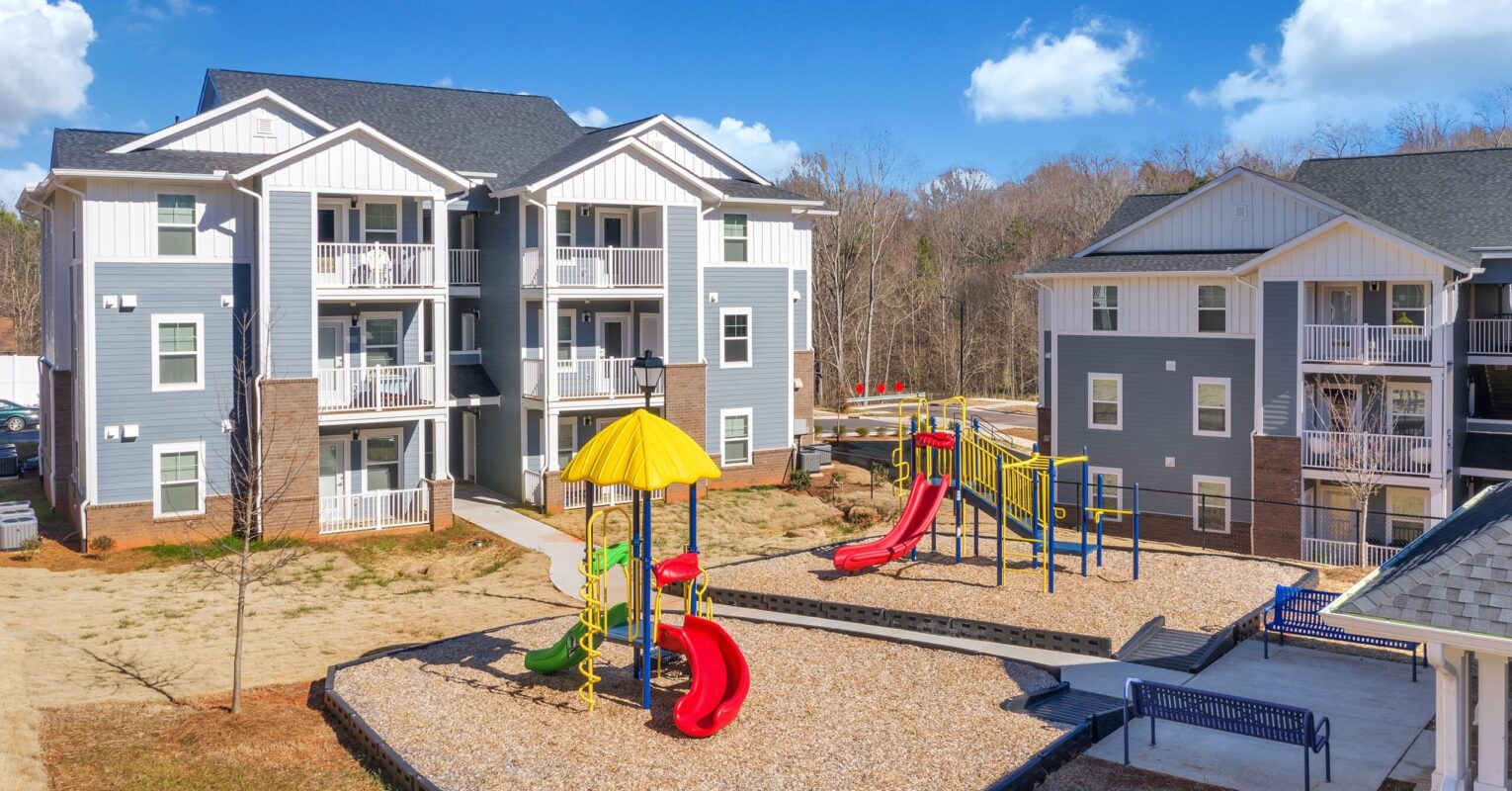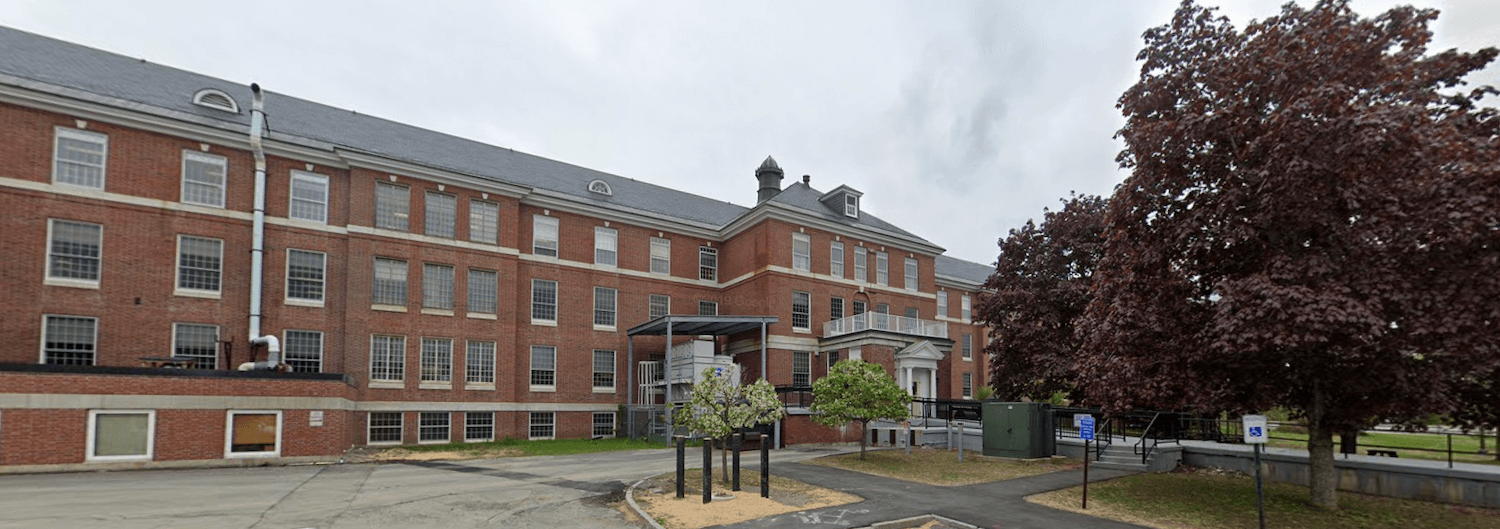Editor’s note: ImpactAlpha has partnered with HIP Investor to highlight upcoming bond issues with social and/or environmental significance. Disclaimer: Nothing in this post or on ImpactAlpha.com shall constitute an offer to sell or solicitation of an offer to buy bonds.
- CUSIP bond identifier: 658207X42
- Issuer: North Carolina Housing Finance Agency
- Impact entity rated by HIP: North Carolina Housing Agency (rolling up 100 county local housing agencies across the state)
- Muni sector: Housing
- Closing date: May 4, 2023
- Bond amount: $150 million
- Coupon: 5.5% “non-AMT” (not subject to Alternative Minimum Tax limits)
- HIP Impact Rating: 61% connoting “net positive” (higher than 50 on 100-point scale)
- Opportunity Zones located in the issuing entity: 252, equaling 1.1 million citizens (of 10.6 million citizens in North Carolina)
- UN SDG Rating by HIP (on 100 point scale):
- 50.2% Goal 1: No Poverty
- 47.0% Goal 8: Decent Work and Economic Growth
- 52.6% Goal 10: Reduced Inequalities
- 55.9% Goal 11: Sustainable Cities and Communities
North Caroline Social Bond
The North Carolina Housing Finance Agency (“NC HFA”) is expecting to complete a $150 million Social Bond by May 4th, 2023, which will be used to purchase new mortgage loans for single-family residential housing. The loans will be targeted towards low and moderate-income households – primarily for loans to individuals with an income of less than 80% of the Area Median Income; thus, a qualifying income state-wide of about $24,100 per individual in 2020, though the exact figure may differ by county inside the state.
The NC housing bonds’ designation as social bonds are consistent with the International Capital Markets Association Social Bond Principles – including affordable housing, access to essential services, socioeconomic advancement and empowerment, and affordable basic infrastructure.
These bond proceeds augment the NC HFA’s assistance programs to address public housing needs – including NC’s Home Advantage Mortgage program, NC’s 1st Home Advantage Down Payment program, and NC’s Home Advantage Tax Credit program. Of the 1.41 million people under the poverty level in North Carolina, the state agency has financed close to 300,000 homes and apartments, which includes approximately 9,000 affordable units, benefiting citizens across all 100 counties of North Carolina.
HIP Impact Analysis
HIP Investor quantitatively evaluates Housing Agency muni bonds based on real-world results creating and supporting low-income access to housing. HIP’s Impact rating is based on 25 data-driven metrics across thousands of affordable housing agencies nationwide. HIP impact metrics determine the impact in five key pillars: health, wealth, earth, equality, and trust, providing a deeper understanding of an entity’s overall impact and how it contributes to positive change in the world. For example, the percentage of an individual’s income spent on housing is used to capture housing affordability.
In addition to evaluating Housing Agencies against 25 performance metrics, HIP Investor also maps their performance to the UN Sustainable Development Goals. This $150 million Social Bond is aligned with four of the 17 UN SDGs:
- SDG No. 1 seeking No Poverty, which affordable housing supports.
- SDG No. 8 pursuing Decent Work and Economic Growth, potentially building generational wealth in families and communities.
- SDG No. 10 seeking Reduced Inequalities, as many lower-income families are also people of color, women, and single parents.
- SDG No. 11 vision of Sustainable Cities and Communities, which need affordable housing, transportation, and access to health care.
HIP rates the NC HFA “net positive” on three of the UN SDGs (1, 10, and 11) and falls slightly short of “net positive” for SDG 8 in amplifying decent work and economic growth. Owner-occupied housing, which can build wealth over time, a metric measured by HIP, is incorporated into these SDG Ratings.
Home ownership
Home ownership is a significant part of the American Dream. Home ownership not only provides stability and safety, it is also crucial for physical and mental health, as well as wealth accumulation. However, housing affordability and shortage issues in North Carolina prevent North Carolinians from achieving their American Dream.
These challenges disproportionately affect individuals and families with financial hardship. With 13.4% of 10.6 million North Carolinians living in poverty, the need for providing affordable housing is critical. According to NC HFA, the state is in need of at least 545,000 affordable homes this decade for low income citizens, and nearly 900,000 additional homes to meet the growing population trends.
The North Carolina housing agencies provide multiple assistance programs. For example, qualified homebuyers can benefit from the NC Home Advantage Mortgage program, which offers competitive interest rates and down payment assistance of up to 3% of the loan principal. Additionally, first-time homebuyers and military veterans can receive up to $15,000 in down payment assistance through the NC 1st Home Advantage Down Payment program.
To address the financial challenges that homeowners in North Carolina faced during the pandemic, NC HFA established the NC Homeowner Assistance Fund (NC HAF), whose primary goal is to avoid situations where homeowners, particularly those with limited financial resources, are unable to make their mortgage payments on time, default on their loans, lose their homes, or become displaced.
Building generational wealth
Housing inequality is a significant contributor to wealth disparities, as homeownership is a common means of accumulating wealth in America. However, for many Americans, home ownership is unattainable due to rising housing costs. In North Carolina, housing costs have surged by 3.3% in the past year, which raises barriers for first time home buyers. With NC HFA’s support, more citizens in the state see the hope of owning a home, regardless of their income level, race, or gender.
In 2021 and 2022, the agency originated a total of more than 4,000 securitized mortgage loans, over 90% of which were loaned to borrowers earning less than the average median income, 33% to minority borrowers, and 53% to women borrowers. As more North Carolinians become homeowners, they are able to build more generational wealth, helping to close the wealth gap that exists in the state. By providing affordable housing solutions, NC HFA is making a significant contribution to reducing wealth disparities in North Carolina.
“Net positive”
Investors seeking impact can consider this higher-impact bond from the NC housing authority, a combination of all housing agencies in the state. Of more than 3,700 housing agencies in the United States, the NC housing agency earns an overall HIP Rating of 61%, which positions it “above average” compared to nationwide counterparts for states and counties. With its multiple housing assistance programs, NC HFA pursues positive social impact and benefits hundreds of thousands of North Carolinians, particularly low-income homebuyers.
Stella Yao is an ESG impact investing analyst at HIP Investor.
HIP Investor Inc. is a state-registered investment adviser in several jurisdictions, and HIP Investor Ratings LLC is an impact-ratings firm evaluating impact and ESG on 123,000 municipal entities, 250,000 muni-bond issuances, and 12,000 corporates for equities and bonds. HIP Impact Ratings are for your information and education – and are not intended to be investment recommendations. Past performance is not indicative of future results. All investments are risky and could lose value. Please consult your investment professionals to evaluate if any investment is appropriate for you, your goals, and your risk-return-impact profile.












